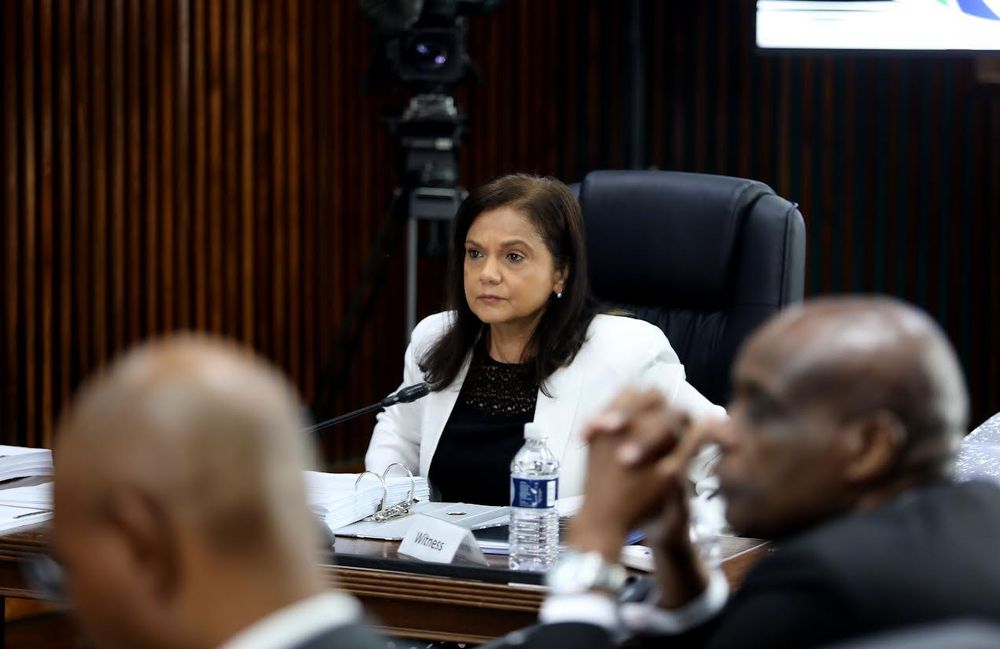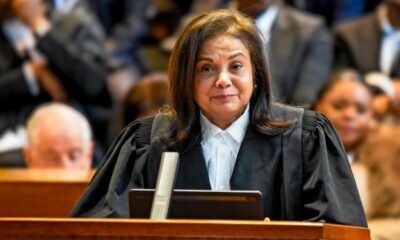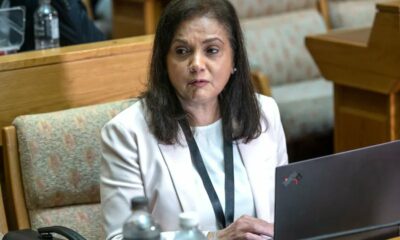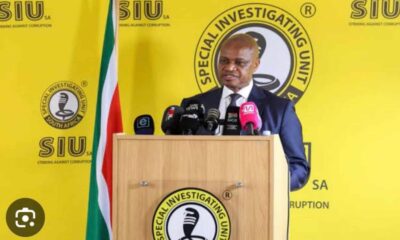News
Batohi’s Stand: How the Nkabinde Inquiry Is Rewriting the Chauke Prosecution Story

A Fresh Twist in South Africa’s Most Watched Prosecutorial Inquiry
The Nkabinde Inquiry returned to the spotlight this week as Advocate Shamila Batohi, head of the National Prosecuting Authority, stepped back onto the witness stand. What unfolded was a detailed, sometimes tense unpacking of how major prosecutorial decisions were handled inside the NPA, particularly during the tenure of suspended South Gauteng Director of Public Prosecutions, Advocate Andrew Chauke.
The inquiry is centred on one key question: whether Chauke is fit to continue holding office. It was triggered by a formal complaint laid by Batohi herself and has become one of the most closely followed legal proceedings of the year. South Africans have been watching, partly because of the high profile of those involved and partly because the cases under scrutiny still carry heavy public interest more than a decade later.
The Cases That Sparked a National Conversation
Two controversial matters sit at the heart of the inquiry. The first concerns racketeering charges brought against Major General Johan Booysen and members of the Cato Manor Organised Crime Unit. The second involves the decision to withdraw murder charges against former Crime Intelligence boss Lieutenant General Richard Mdluli.
Both cases have long histories in South African public life. For many, the Booysen matter symbolised a broader fight over accountability inside law enforcement. The Mdluli case raised questions that still linger about how power is exercised in high-ranking policing structures. It is against this backdrop that the Nkabinde Inquiry is unfolding, and why every testimony, document, and clarification is being examined with intense interest.
A Strengthened Evidence Team and a Heavy Workload
As the inquiry has progressed, the volume of evidence has become clear. On Tuesday, the inquiry announced that its Evidence Leading Team has been expanded. Advocates David Mtsweni and Themba Skosana SC have joined Advocate David Mohlamonyane SC in leading the complex process.
According to inquiry spokesperson Tiyisela Mpuzana, the expansion was necessary because of the vast number of documents and the legal complexity of the issues before the panel. The goal is to maintain fairness and transparency while ensuring the proceedings stay on schedule. This detail might sound administrative, but it reflects just how layered and demanding the process has become.
Batohi’s Testimony and the Heart of the Dispute
During her appearance this week, Batohi focused on a significant documentary trail that includes internal memoranda, correspondence, affidavits, and consultation notes. All of these, she argued, point to Chauke having played a direct and central role in the key prosecution decisions now under scrutiny.
Her position was clear. Chauke was not a passive liaison or coordinator. He was, in her words, acting as the DPP in charge of the matter. She highlighted multiple documents where senior advocates, including Nomgcobo Jiba and Laurance Hodes SC, confirmed that Chauke finalised affidavits, led prosecution meetings, and shaped strategic decisions.
One of the most striking pieces of evidence was an internal memorandum from Advocate Anthony Mosing dated June 2013. It outlined Chauke’s leadership of the prosecution team during consultations with Hodes SC in preparation for Booysen’s review challenge. This contradicted earlier suggestions that technical lead Advocate Sello Maema was the primary driver of the case.
In Batohi’s telling, Maema led the technical team while Chauke took charge of the broader strategy. She stressed that taking a matter on appeal is a prosecutorial call and that Chauke’s involvement in the appeal process confirmed his authority over the case.
Why the Inquiry Matters in 2025
For many South Africans, this inquiry represents more than an internal NPA dispute. It speaks to long-standing frustrations with unequal accountability in the justice system. On social media, discussions have been vibrant. Some see the proceedings as long-overdue transparency in the prosecution service. Others worry about political interference or personal vendettas shaping the process.
There is also a broader cultural moment at play. South Africa in 2025 is still grappling with legacies of mistrust in state institutions. Inquiries like this one offer a rare window into how decisions were made behind closed doors and whether those decisions aligned with public interest.
What Comes Next
The Nkabinde Inquiry will continue hearing evidence as its expanded team works through the significant volume of material. Batohi’s testimony has marked a turning point, sharpening the focus on Chauke’s authority and decision-making. As the inquiry moves forward, South Africans will be watching to see whether the panel ultimately finds that Chauke acted within his mandate or whether the concerns raised will permanently alter his future in the NPA.
The stakes are high. Careers, reputations, and public trust all hinge on what the final report concludes.
Also read: KZN Hawks Chief’s Testimony Delayed as R360m SAPS Tender Scandal Deepens
Follow Joburg ETC on Facebook, Twitter, TikT
For more News in Johannesburg, visit joburgetc.com
Source: IOL
Featured Image: Cape Argus



























